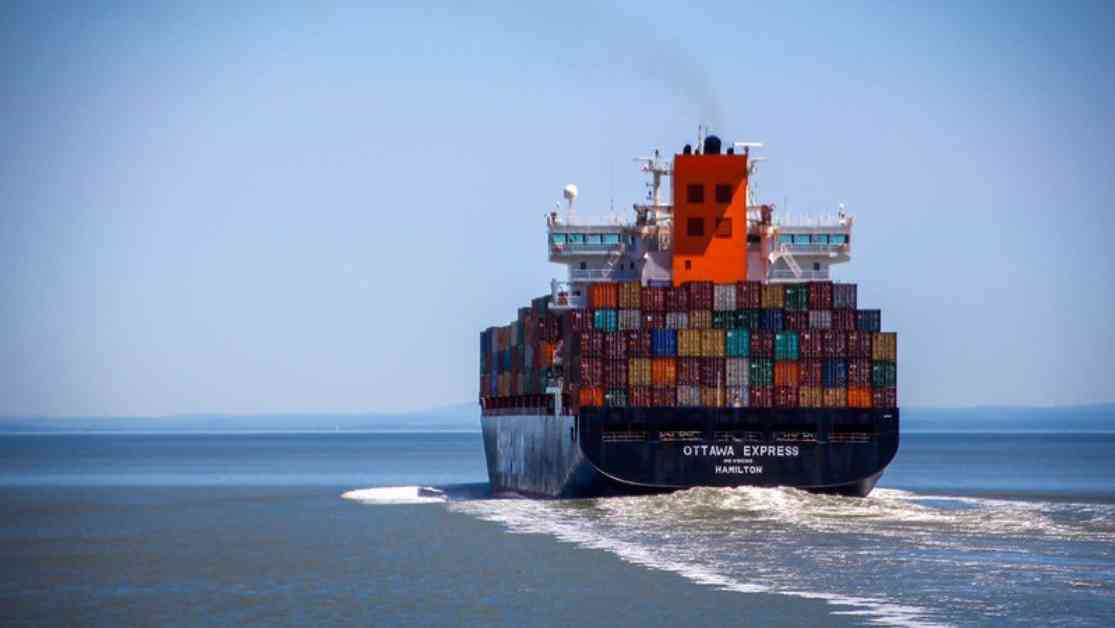Global Support Grows for Carbon Tax on Shipping to Combat Climate Change
As governments worldwide race against the clock to tackle the pressing issue of climate change, a groundbreaking development is on the horizon: the implementation of a universal emission price on the international shipping industry. Spearheaded by Ralph Regenvanu, Vanuatu’s Special Envoy for Climate Change and Environment, this initiative aims to address one of the largest contributors to global emissions – the shipping sector.
The International Maritime Organization (IMO), consisting of 176 member states, set a historic target in 2023 to achieve zero emissions in shipping by 2050. This ambitious goal, designed to be fair and equitable, requires pricing the sector’s one billion tonnes of annual emissions, which represent approximately 3% of all global emissions. The upcoming IMO meeting on February 17-21 seeks to finalize the critical policy that will pave the way for this transformation, with an anticipated implementation date of 2027.
Recent months have witnessed a groundswell of support for a carbon price in the form of a levy, with 49 countries from various regions endorsing this approach. Notably, major shipping nations like Panama, Liberia, Greece, and Japan have thrown their weight behind the levy, signaling a significant shift towards sustainable practices in the industry. The focus now turns to shaping the future policy to ensure it is robust, ambitious, and effective in achieving the emissions reduction targets.
Driving Climate Action through a Global Shipping Tax
A carbon levy on shipping emissions holds the promise of incentivizing the transition to clean energy while generating much-needed funds to support this transition. Estimates by the World Bank suggest that implementing a $100 per tonne of CO2e price could yield approximately $60 billion annually, a figure that could rise substantially with a $150 levy. This financial influx is crucial for financing the necessary changes in the shipping sector and ensuring that emissions reduction goals are met.
The potential benefits of a global shipping tax extend beyond economic considerations to encompass environmental and social impacts. By channeling revenue from the levy towards climate action efforts, vulnerable regions, particularly in the Global South, stand to gain critical support in adapting to climate change and investing in renewable energy infrastructure. This strategic allocation of funds could not only alleviate the burden on these countries but also foster a more sustainable future for all.
Charting a Path to Sustainable Shipping: The Role of Accountable Nations
Economic experts emphasize that transitioning to clean energy in the shipping industry will require financial resources, making a levy a practical and effective solution. Studies commissioned by the IMO echo these sentiments, highlighting the importance of proactive measures to keep costs manageable and avert the exorbitant expenses of climate inaction. With projections indicating potential losses of trillions of dollars in the absence of decisive action, the urgency of implementing a carbon tax becomes all the more apparent.
As the world grapples with the impacts of climate change, the need for collective action and international cooperation has never been more evident. By rallying behind initiatives such as the carbon tax on shipping, countries can demonstrate their commitment to a sustainable future and contribute to the global effort to limit temperature rise to 1.5°C. The stage is set for transformative change, and it is up to policymakers and stakeholders to seize this opportunity to make a lasting impact on the planet’s health and well-being.














